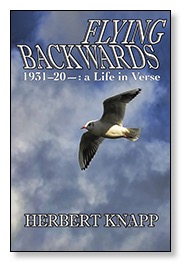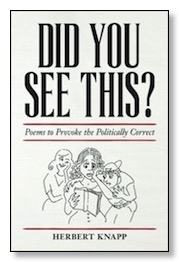Comment on 9/ll
I have an itch to scratch about the response to 9/11.
In the days after the buildings went down, several pundits quoted a line from W.H. Auden’s poem “September 1, 1939”(The date Hitler invaded Poland and started WW2.). The line they quoted was, “We must love one another or die,” chosen I’m sure to warn us deplorables against Islamophobia. (Not even they could not have supposed it would have any affect on our enemies.) It is a line that sums up the secular Liberal belief that survival is more important than sacrifice, that there are no disagreements that can’t be cured by therapeutic love, and that everything bad that happens is America’s fault.
Auden came to feel strongly that that particular line was “a damned lie.” He tried to revise it. He tried leaving out the whole stanza. Nothing worked. He decided the whole poem was “infected with incurable dishonesty and must be scrapped.” He was right. The poem includes wonderful lines and stanzas. But it is an argumentative poem that tries to do too much in too little space.
I read posts by one or two bloggers who quoted Kipling after 9/11, but the lines they quoted didn’t get wide circulation. Our political betters have decided Kipling (the author of Kim!) is a deplorable and no amount of quoting from his poems is ever going to change their minds. Our literary betters also tell us his poems are not really poems (except for a half dozen or so) but merely verse, i.e. minor league stuff.
But two of Kipling’s poems are far more relevant to 9/11 than Auden’s mawkish admonition that we really must love one another. One is “The Gods of the Copybook Headings” that judges us to heed the trite but true old sayings that students were once required to write at the top of each page of their copybooks. If we did, we would learn: “That Water would certainly wet us, as Fire would certainly burn.” But we didn’t learn those things. We found the Gods of the Copybook headings “lacking in Uplift, Vision and Breadth of Mind,” so we deserted them for the Gods of the Market place who promised us a “Fuller Life,”
(Which started by loving our neighbor and ended by loving his wife)
Till our women had no more children and the men lost reason and faith.”
David Goldman, Mark Steyn, and others have pointed out that this is what is happening. People in Europe and America have stopped having babies. We are headed for a time when there will be four retirees and eight caregivers for every worker. Of course, the country will collapse long before that, but that’s where we are heading, And Kipling, that bigoted mere versifier, saw it all a hundred years ago,
The Gods of the Market Place promised “abundance for all, / By robbing selected Peter to pay for collective Paul.”
"And that after this is accomplished, and the brave new world begins
When all men are paid for existing and no man must pay for his sins,
As surely as Water will wet us, as surely as Fire will bum,
The Gods of the Copybook Headings with terror and slaughter return."
The other Kipling poem that bears on 9/11 is “Tommy,” a generic name for the British soldier.
"Then it's Tommy this, an' Tommy that, an' 'Tommy, 'ow's yer soul?'
But it's 'Thin red line of 'eroes' when the drums begin to roll . . ."
That poem is too critical of the better sort who look down on men in uniform to ever be widely quoted today, but as I watched Manhattan eulogize the policemen and firemen who died in the twin towers—men whom the better sort had regarded just the day before as sexist louts and racist bigots in need of “sensitivity training”—I remembered “Tommy,”
"For it's Tommy this, an' Tommy that, an' "Chuck him out, the brute!”
But it's "Saviour of 'is country" when the guns begin to shoot;
An' it's Tommy this, an' Tommy that, an' anything you please;
An' Tommy ain't a bloomin' fool -- you bet that Tommy sees!"
Here’s my poem about 9/!!
NOTHING WORKS
I’ve tried and tried
to write about the towers burning
and the leapers dropping, dropping,
dropping through the morning light.
But nothing works. The job’s too much for me.
And maybe it’s too much for poetry
the way it’s done today. The subject’s like
a sturdy country girl among the sleek
glamazons of Fashion Week.
Oh, she would be a wow
wearing a Kipling or a Julia Howe.
But those styles aren’t just dated. They’re obscene.
Imagine it. The arts community
would have a cow.


